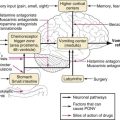
Addiction is a complex issue that affects individuals, families, and communities. It doesn’t just impact the person struggling with it but can create ripple effects that influence relationships, work, and overall well-being. Overcoming addiction is often difficult, but understanding its challenges is the first step toward recovery. Addiction can stem from various causes, including stress, trauma, and environmental factors, and it requires a comprehensive approach to address it effectively.
Recognizing the signs, understanding the impact, and seeking the right support can make a significant difference in the journey toward recovery. In this blog, we will share insights into the different challenges associated with addiction and ways to address them effectively.
Recognizing the Signs of Addiction
Many people may not realize they have a problem until it starts to affect different areas of their lives. Common signs of addiction include changes in behavior, mood swings, neglecting responsibilities, withdrawal from social activities, and physical symptoms like weight changes or poor hygiene.
For instance, someone dealing with alcohol addiction might struggle with mood swings, frequent cravings, or an inability to limit their drinking. They may need guidance and support in the process of alcohol recovery to overcome their dependency. Recognizing these signs early can make a significant difference in finding the appropriate treatment and support. It’s important to understand that addiction doesn’t just mean physical dependence; it also includes the mental and emotional aspects that keep someone tied to their substance of choice.
Physical Health Impacts of Addiction
Addiction takes a serious toll on the body, often leading to a range of health problems. Depending on the substance involved, the physical effects can vary but are generally harmful. Alcohol addiction, for example, can lead to liver damage, high blood pressure, and weakened immune systems. Drugs like opioids, cocaine, or methamphetamine can affect the heart, lungs, and even brain function.
When a person is struggling with addiction, they often neglect their physical health, which makes these issues even worse. Dehydration, malnutrition, and sleep disturbances are common among those battling substance abuse. These health impacts highlight the importance of seeking medical attention and support during the recovery process. A comprehensive approach to recovery should address not just the addiction itself but also work to restore the body to a healthier state.
Psychological Challenges of Addiction
Addiction doesn’t only affect the body; it also has a significant impact on mental health. Many individuals struggling with addiction experience anxiety, depression, or feelings of hopelessness. Over time, the brain’s chemistry changes, leading to increased cravings and a higher dependence on the substance. This cycle makes it difficult to quit, even when someone wants to.
The psychological aspect of addiction often requires professional treatment, such as counseling or therapy, to help individuals understand their triggers and develop healthier coping mechanisms. Cognitive-behavioral therapy (CBT) is one approach that helps people recognize negative thought patterns and behaviors associated with addiction. Addressing the psychological challenges is essential for lasting recovery, as it helps build resilience and reduces the risk of relapse.
The Impact on Relationships
Addiction can take a heavy toll on relationships with family, friends, and colleagues. As individuals become more focused on their substance use, they may withdraw from loved ones or engage in behaviors that damage trust. This can lead to conflicts, misunderstandings, and feelings of isolation, both for the person with the addiction and their loved ones.
Repairing these relationships is often a key part of the recovery process. Open communication, honesty, and a willingness to seek help are essential in rebuilding trust. Support from family and friends can make a big difference in the recovery journey, but it often requires patience and understanding from everyone involved. Attending family therapy sessions or support groups can help rebuild these connections and offer a foundation of support during the recovery process.
Financial Consequences
Substance abuse can have a significant impact on a person’s finances. Maintaining an addiction is costly, and it can lead to financial instability over time. Many individuals struggling with addiction may experience job loss, reduced work performance, or increased absenteeism, making it harder to maintain a stable income. In some cases, people may resort to borrowing money, accumulating debt, or even engaging in illegal activities to fund their addiction.
Recovering from addiction includes learning how to manage finances again and making responsible choices. This might involve creating a budget, seeking employment, or getting financial counseling. Addressing financial challenges is an important part of rebuilding one’s life, as it helps create a sense of stability and security.
Social Stigma and Shame
One of the biggest barriers to seeking help for addiction is the stigma attached to it. Many people struggling with addiction feel judged or ashamed, which can prevent them from reaching out for support. The fear of being labeled or misunderstood often leads to isolation, making it even more challenging to take that first step toward recovery.
Reducing the stigma around addiction is important. Open conversations, education, and understanding can help change how society views addiction, encouraging more people to seek help. Support from family, friends, and communities can make a significant difference in helping individuals feel less isolated and more willing to begin their recovery journey.
Preventing Relapse
Preventing relapse is one of the most challenging aspects of addiction recovery. Many people experience cravings or find themselves in situations that trigger the desire to return to old habits. Learning how to identify these triggers is a vital part of maintaining sobriety. Common triggers can include stress, certain social situations, or even specific people or places.
Developing coping mechanisms, such as mindfulness techniques, exercise, or engaging in hobbies, can help manage cravings and avoid relapse. Having a strong support network, staying connected with therapy or support groups, and focusing on long-term goals also play a significant role in preventing relapse and staying committed to recovery.
The Role of Self-Care in Recovery
Taking care of oneself is essential for anyone recovering from addiction. Self-care practices, such as regular exercise, eating nutritious meals, and getting enough sleep, help improve physical health and well-being. Engaging in activities that bring joy, relaxation, or a sense of accomplishment can support emotional and mental health.
Creating a balanced lifestyle that prioritizes self-care helps build resilience and reduces the risk of turning back to harmful habits. By focusing on self-care, individuals can improve their mood, manage stress, and stay motivated on their path to recovery.
In a nutshell, understanding the challenges of addiction is key for finding effective ways to address it. From recognizing the early signs to dealing with physical, psychological, financial, and social impacts, addiction is a complex issue that requires a comprehensive approach. Accessing the right support, addressing mental health concerns, and practicing self-care are all important steps in overcoming addiction. Recovery is possible with the right tools, guidance, and dedication. By facing these challenges head-on, individuals can work toward a healthier, more fulfilling life, free from the grip of addiction.





